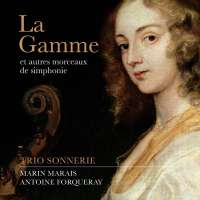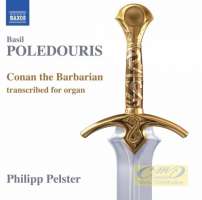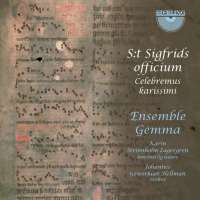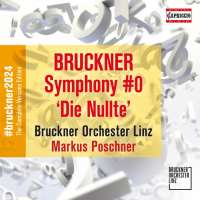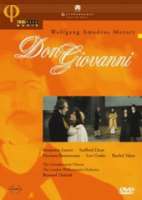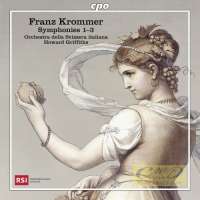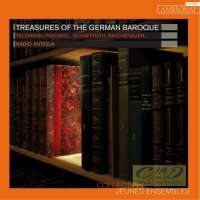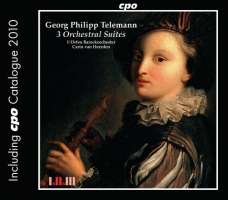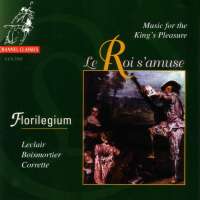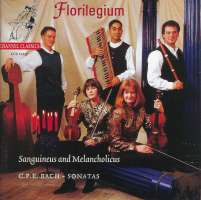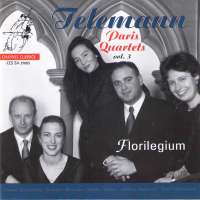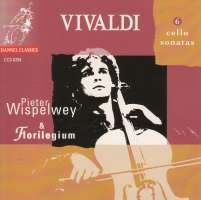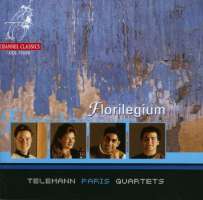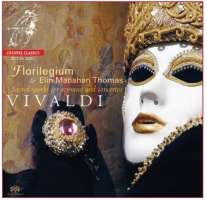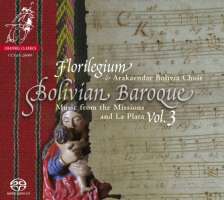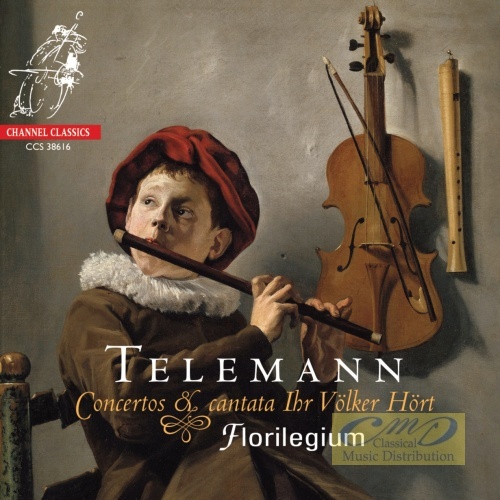
classical music distribution

(Produkt nie został jeszcze oceniony)
kompozytor
Telemann, Georg Philipp
tytuł
Telemann: Concertos & cantata "Ihr Völker Hört"
wykonawcy
Florilegium
nr katalogowy
CCS 38616
opis
Georg Philipp Telemann came from an affluent but unmusical family. Though he showed early promise as a performer and composer, his mother had other ideas and tried to discourage him by confiscating all his musical instruments. As a law student in Leipzig, however, he became increasingly involved in ‘extra-curricular’ musical activities. He composed a cantata every two weeks and had written four operas by the time he gave in totally to his real passion. Fame and fortune in a creative artist’s lifetime do not necessarily presage the judgement of posterity. Throughout Germany Telemann basked in the sunshine of success, far eclipsing his contemporary colleague and occasional competitor Johann Sebastian Bach. In 1722 he was chosen by the city fathers of Leipzig for the position of Kantor at the St.Thomas Choir School; Bach was approached and secured this position only after Telemann had turned the offer down. When City Councillor Platz announced the appointment of Bach as Kantor for the churches in Leipzig in 1723 , his pronouncement stated, “Since the best man could not be obtained, mediocre ones would have to be accepted.” Telemann had no intention of going to Leipzig. He simply used the offer to improve his bargaining position at Hamburg, where he established himself as Kantor of the five main churches in the city and ultimately as Director of the Hamburg Opera (an unheard of combination that annoyed the city fathers). He remained in Hamburg until his death in 1767.
nośnik
CD
gatunek
Muzyka klasyczna
producent
Channel Classics
data wydania
22-09-2016
EAN / kod kreskowy
723385386162

(Produkt nie został jeszcze oceniony)
cena 79,00 zł
lubProdukt dostepny w niewielkiej ilości.
Wysyłka w ciągu 3 dni roboczych
Darmowa wysyłka dla zamówień powyżej 300 zł!
Darmowy kurier dla zamówień powyżej 500 zł!
sprawdź koszty wysyłkiProduktu jeszcze nie zrecenzowano, chcesz być pierwszy?
Klienci, którzy kupili ten produkt, kupili również
Dvorak, Antonin
Dvorak: Sacred Songs - Ave Maria; Biblical Songs; Ave Maris Stella; ...
C 5207
Bach, Carl Philipp Emanuel, Graun , Johann Gottlieb
C.P.E. Bach & Graun: Viola Concertos
CPO 555 613-2
Michans, Carlos
Carlos Micháns: Dravidian Moods for Oboe and String Quartet, Divertimento for Eight Strings, Piano Quintet
MDG 603 1752-2
Pozostałe płyty tego kompozytora
różni kompozytorzy
Pieter Wispelwey - The Complete Channel Classics Recordings
CCS BOX 7624
różni kompozytorzy, Pisendel, Johann Georg, Telemann, Georg Philipp
Treasures of the German Baroque - Telemann Pisendel Schaffrath …
AMY 305
Telemann, Georg Philipp
WYCOFANA Telemann: 3 Orchestral Suites (CD+katalog 2010)
CPO 777 515-2
Telemann, Georg Philipp
Telemann: Complete Concertos and Trio Sonatas with viola da gamba
94831
Telemann, Georg Philipp, Graupner, Christoph
Graupner: Das Leiden Jesu - Passion Cantatas II
CPO 555085-2
Handel, George Frideric, Telemann, Georg Philipp
Händel - Telemann: Cleofida, Königin von Indien
CPO 555 560-2
Pozostałe płyty tego wykonawcy
Leclair, Jean-Marie, Boismortier, Joseph Bodin de, Corrette, Michel
Music for the King’s Pleasure
CCS 7595
Couperin, François, Rebel, Jean-Féry
Couperin: Les Nations, Jean-Féry Rebel: Les Caractères de la danse
CCS SA 33213
różni kompozytorzy
Bolivian Baroque Vol. 3 - Music from the Missions and La Plata
CCS SA 28009
Pergolesi, Giovanni Battista
WYCOFANY Pergolesi: Stabat Mater, Flute Concerto in G major, Sinfonia in F major for cello and b.c., Salve Regina in F minor
CCS SA 29810
Napisz recenzję dla: Telemann: Concertos & cantata "Ihr Völker Hört"
Zapytaj o dostępność produktu
Twoje zapytanie:
Odpowiemy na adres:
Produkt został dodany do koszyka

Telemann, Georg Philipp
Telemann: Concertos & cantata "Ihr Völker Hört"
1 szt



